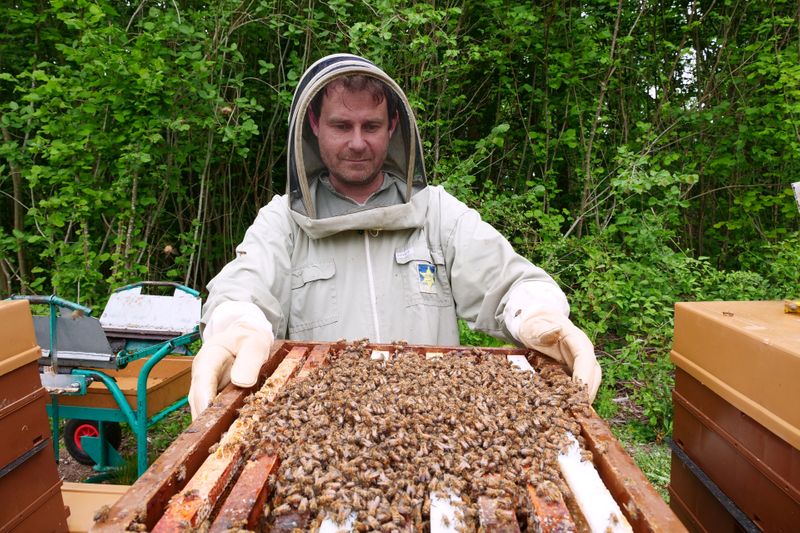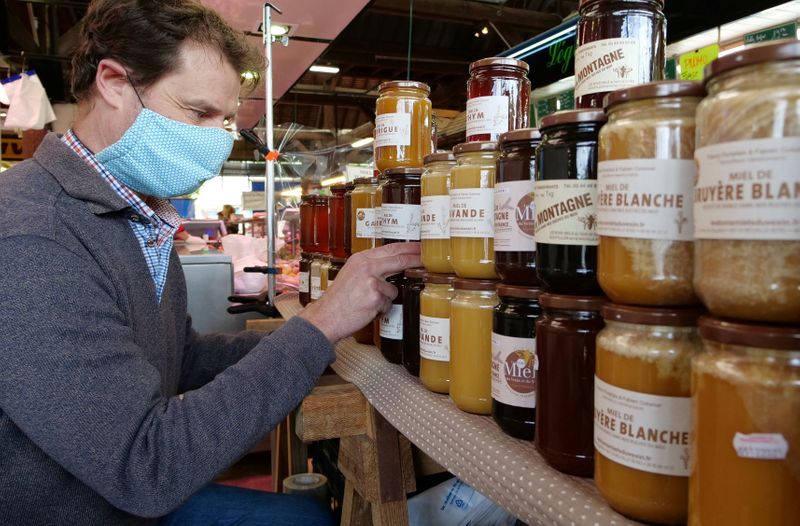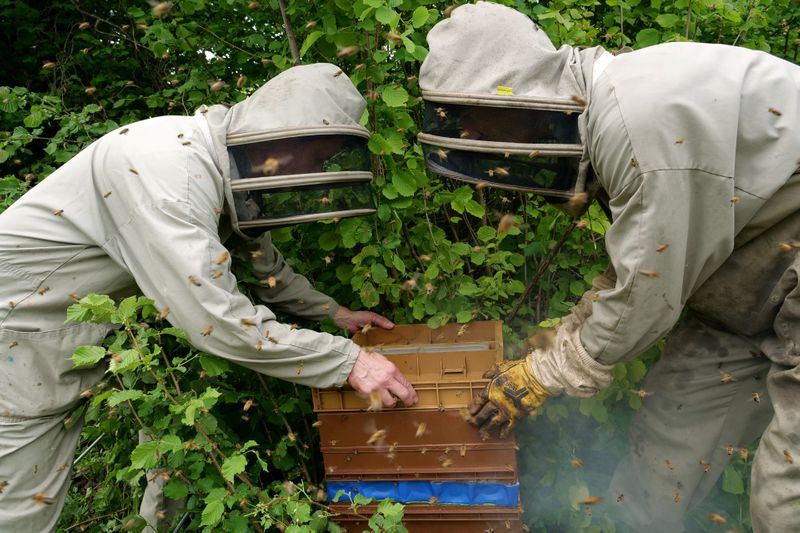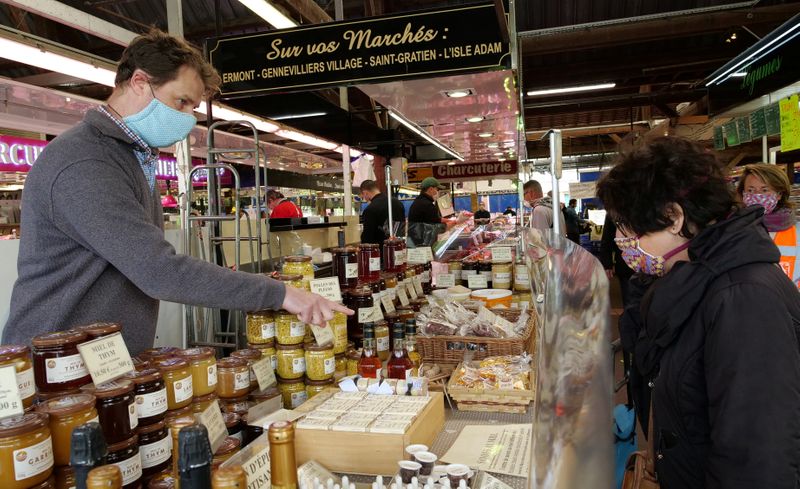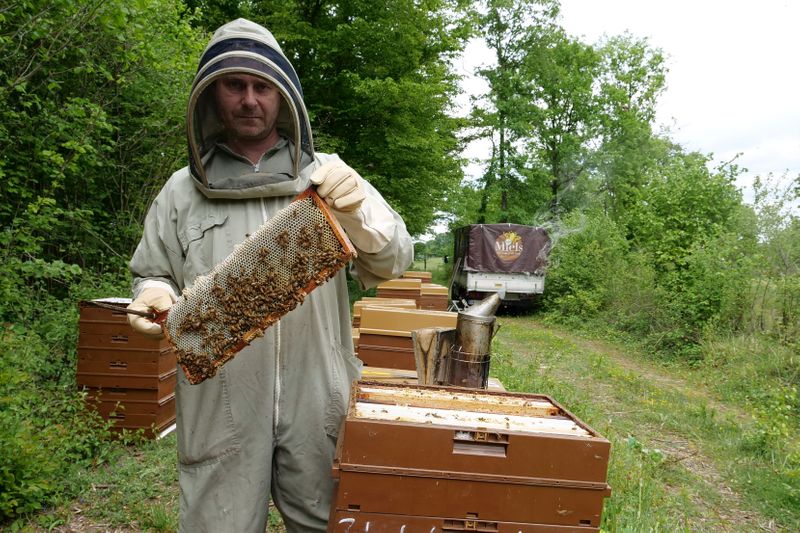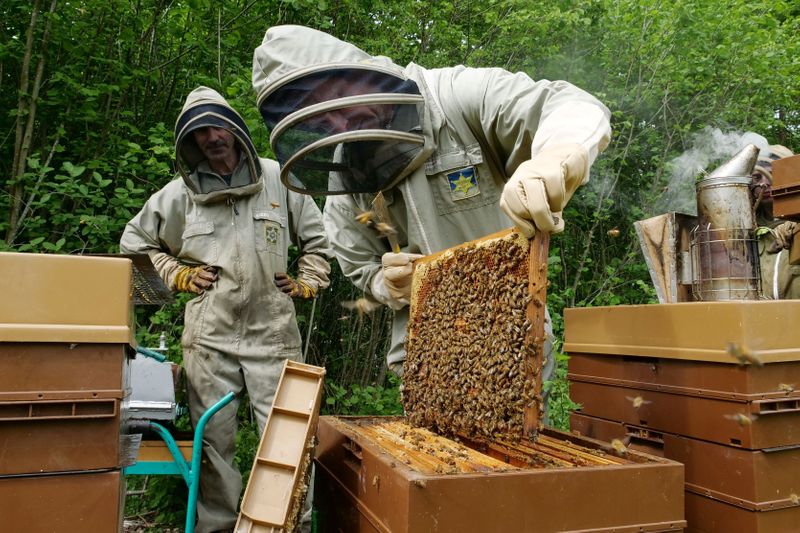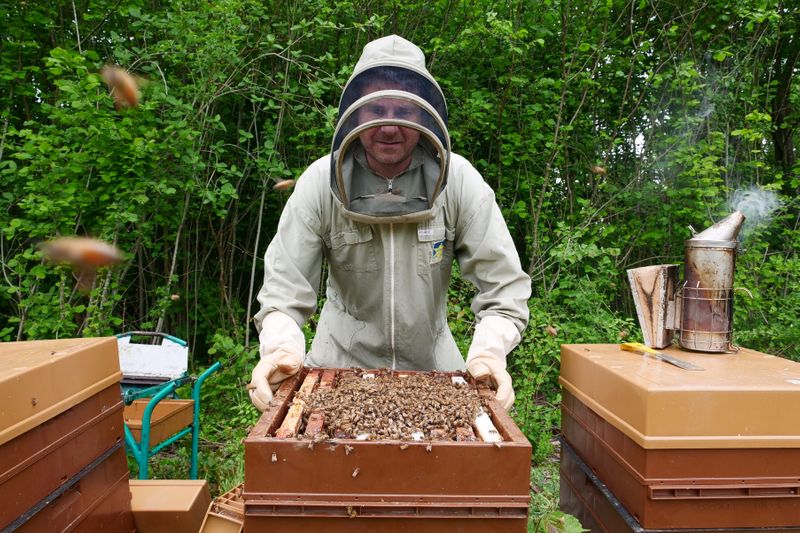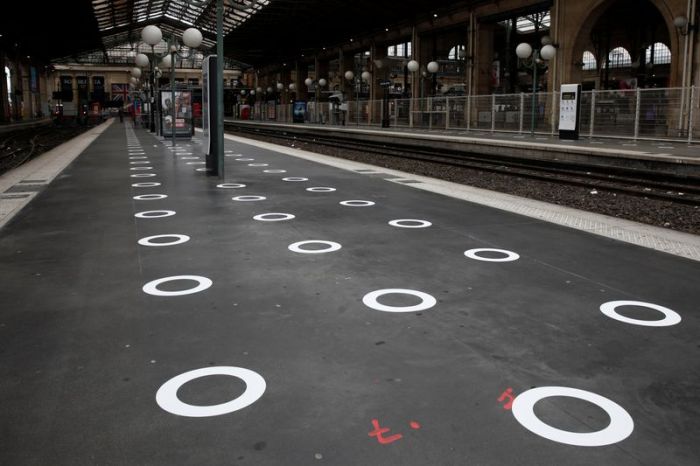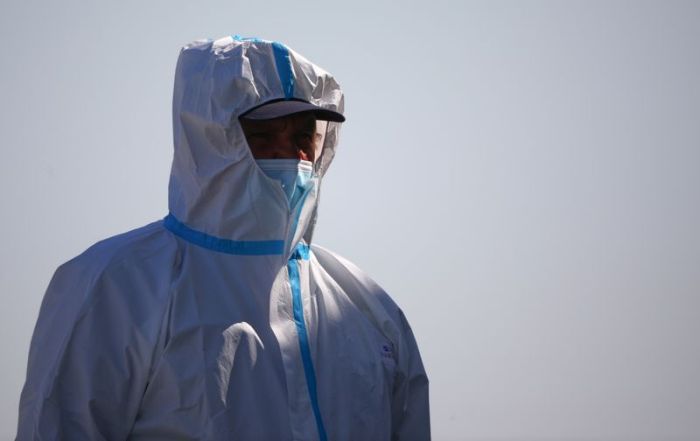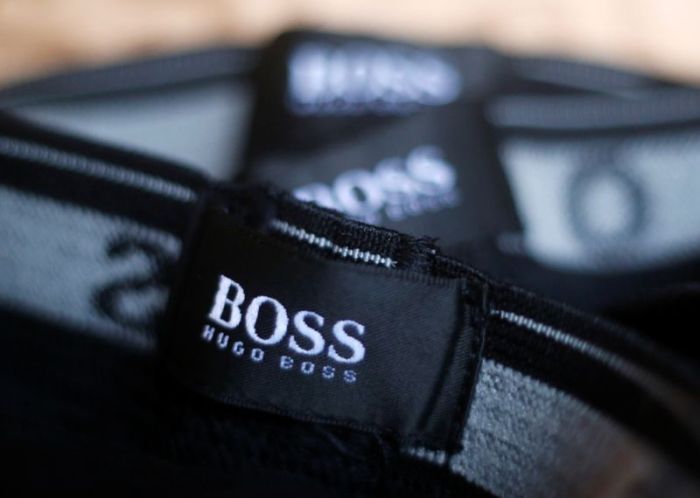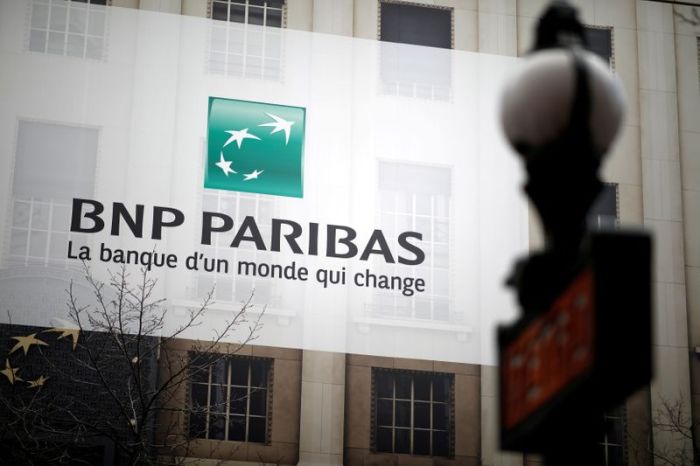CHANTILLY, France (Reuters) – Beekeepers in France are celebrating a bumper spring honey harvest after weeks of warm weather but will need a smooth unwinding of the coronavirus lockdown if they are to find a market for their produce.
Down an overgrown track near the Chantilly Palace, where the James Bond film “A View to a Kill” was filmed in the 1980s, beekeeper Franck Portefaix says it could be the best season in four decades.
“The blossom was almost three weeks early and the harvest is very, very good,” said Portefaix, who followed his parents into beekeeping 30 years ago.
Nearby, colleagues in protective suits sprayed smoke over hives before opening them to extract the raw honey, most of which Portefaix’s business sells in markets.
Temperatures in the l’Oise, north of Paris, in April hit as high as 30 degrees Celsius, more typical of early summer.
In a mediocre harvest, a beehive can produce 4-6 kg of honey, rising to 10 kg in a good harvest, but this spring Portefaix said the best performing among his 500 hives could produce up to 20 kg each.
“1976 was really the year of reference, a very good year. And this year has begun much like that year.”
But not all beekeepers are cheering 2020. While northern and western regions of France basked in ideal April weather, prolonged dry spells hurt harvests in the south. Unfavourable weather also in the Landes region hurt acacia honey production.
“With the upheaval to our climate, harvests are becoming increasingly unpredictable. It’s still early in the season, we need to temper our expectations,” said Henri Clement, a spokesman for the National Union of French Beekeeping.
France produced 28,000 tonnes in 2018, according to the French Federation of Professional Beekeepers (FFAP), before disappointing harvests in 2019.
The challenge for beekeepers in 2020 will be selling the plentiful early supplies. Across France, mayors have closed open-air markets or imposed stringent conditions on openings, part of measures to curb the spread of the coronavirus.
Only one of the 20 markets Portefaix normally sells at is operating. There, he and his colleagues wear masks and store their jars behind cellophane sheets to prevent customers from touching them.
“We have an excellent harvest, so we will have stocks when the lockdown ends,” Portefaix said. “But this period is pretty difficult.”
(Reporting by Noemie Olive and Elizabeth Pineau; Writing by Richard Lough; Editing by Janet Lawrence)

